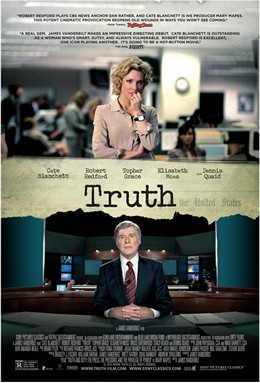Here’s something I wrote on Facebook on Nov 20:
I used to be very frustrated when people I knew and respected who had very well-informed, thoughtful opinions on controversial political issues refused to speak up about them.
Now I get it.
And here are two pretty clear examples of where my sense of frustration comes from. These are two Facebook posts from friends that appeared literally one after another in my Facebook feed. Other than obscuring names, I haven’t changed them at all.
Exhibit A
Exhibit B
So, let’s talk about this.
 First observation: 100PERCENTFEDUP.COM and ADDICTINGINFO.ORG. Really, people? Really? These are the sites that you want to post to your FB feed? Look, I understand that no media outlet is purely objective. Everyone has bias. Everyone has an angle. But the reality is that big-name outlets like the New York Times or NPR or the Wall Street Journal depend, at least in part, on their reputations. And that sets boundaries on their crazy. This is even true of outlets that have an openly declared partisan affiliation, like The Nation or National Review. They have a viewpoint, but they also rely on being taken seriously, even by their opponents. Do you think that RAGINGPOLITICALCLICKBAITY-CLICKBAIT.INFO, which has no reputation to protect, is going to exhibit any of that caution or restraint?
First observation: 100PERCENTFEDUP.COM and ADDICTINGINFO.ORG. Really, people? Really? These are the sites that you want to post to your FB feed? Look, I understand that no media outlet is purely objective. Everyone has bias. Everyone has an angle. But the reality is that big-name outlets like the New York Times or NPR or the Wall Street Journal depend, at least in part, on their reputations. And that sets boundaries on their crazy. This is even true of outlets that have an openly declared partisan affiliation, like The Nation or National Review. They have a viewpoint, but they also rely on being taken seriously, even by their opponents. Do you think that RAGINGPOLITICALCLICKBAITY-CLICKBAIT.INFO, which has no reputation to protect, is going to exhibit any of that caution or restraint?
The mainstream media certainly roots for one team more than the other, but when CBS majorly screws up Dan Rather gets fired and they make a movie about it. When FOAMINGMOUTHPOLITICS-AND-ADREVENUE.NET gets something totally wrong nobody notices and nobody cares. (And, more often than not, people keep linking to it anyway.)
Second observation: let’s just assume for the sake of argument that both the headlines are accurate summaries of the relevant events. Let’s say they are, in simplistic terms, true. Does that mean that the views which the articles are clearly designed to substantiate are reasonable? No. No, it does not. This is what you could call (quite politely) cherry-picking. The most important aspect of cherry-picking is that you don’t have to lie or fabricate to be wrong. Sometimes, every single thing you say can be true and your conclusion can still be so utterly detached from rationality, kindness, and common sense that it has passed “wrong” without stopping on the freeway to Crazyville to accept the keys to the city from Mayor Crazy McCrazyPants.
The point of posting articles like those illustrated above is purely to validate a pre-existing opinion that boils down to simply this: my team is angelic, your team is demonic. These articles come from mutually exclusive parallel realities where the truth is obvious, extreme, and absolute.
The problem with these kinds of articles is not that they are false in the sense in which saying 2+2=5 is false. They are false in the sense in which saying, “Today a stranger stabbed my son with a metal rod” gives a false impression if you’re describing your son getting his vaccination from a pediatrician. What’s lacking is context, perspective, synthesis, and analysis. We might have a couple of facts that are true in the strictest technical sense, but are they complete? Do we have the whole story? Do we understand what it means? Does it actually lead to the implied conclusion once other factors are taking into account?
We’re addicted to outrage. We’re high on the heady feeling of occupying the moral high ground. But that high is really just oxygen deprivation. The world is more and more complex and the way we interact with it is stupider than ever.
The saddest part, for me, is the extent to which people are willing to be mean to each other over these kinds of things. The fact is that the stakes are so incredibly low in a Facebook debate, even when the issue itself is so incredibly important. We confuse the importance of a news story with the importance of our little petty squabbles about it. The refugee crisis is a big deal, with implications that could shape our world for decades or even centuries to come. But your argument with your cousin’s co-worker about that refugee crisis just isn’t a big deal. It’s not worth being rude or unkind.
Now you could say: who cares if some sheltered, Western Facebook denizens get their feelings hurt? What does that matter compared to the plight of refugees fleeing for their lives or the possibility that innocent men and women will be slaughtered by terrorists? But here’s the thing: we cannot hope, as a society, to possibly rise to the challenge of those kinds of high-stakes, big picture questions if we lack the capacity to have even the barest measure of self-control in our conversations about them. One thing we should be able to agree on is this: even if we can’t agree on the right answers to these problems, we should be able to approach to them with maturity and empathy and rationality.
So what can we do?
Read more, and especially from diverse and established sources. Wait longer to write. As I prepare to post this, news is still breaking about a shooting in San Bernadino, California. No one knows anything, except that 1/3rd of my Facebook feed knows that this is caused by lax gun laws[ref]In California? Really?[/ref] and 1/3rd knows that we’re under attack from ISIS[ref]Because one of the killer’s name is Syed Farook. These guys should work for the NSA, with analytical prowess like that.[/ref] I’ve been guilty myself of rushing to post the first and snappiest retort to a developing news story. It’s a bad idea. Resist the urge.
And lastly: cultivate relationships of trust, respect, and even warmth with your friends (real and online). There is truth in the wisdom the united we stand and divided we fall. There is very little that people of good intention working together cannot make better, and very little that people divided by animosity and suspicion cannot make worse.
UPDATE: I forgot to include a link to the best article about this that I’ve read so far: Damon Linker’s The moral stupidity of the refugee debate.


I like this. Thanks. (It’s obvious stuff, and I suppose there’s a criticism or suggestion implicit in saying that, but I don’t feel inclined to make it any more explicit than I just did. Sometimes it should be enough to simply say ‘yes’.)
An article worth reading: https://newrepublic.com/article/124445/beyond-gun-control
Thank you. This hits the nail on the head for my frustrations with my own facebook feed.
An article about how confused Americans can be when the news goes off-script: The San Bernardino Attack Doesn’t Fit Our Familiar Scripts
Yet another article that I found especially thought-provoking: Prayer Shaming After a Mass Shooting in San Bernardino.
The best example of this prayer-shaming is the cover of the New York Post: